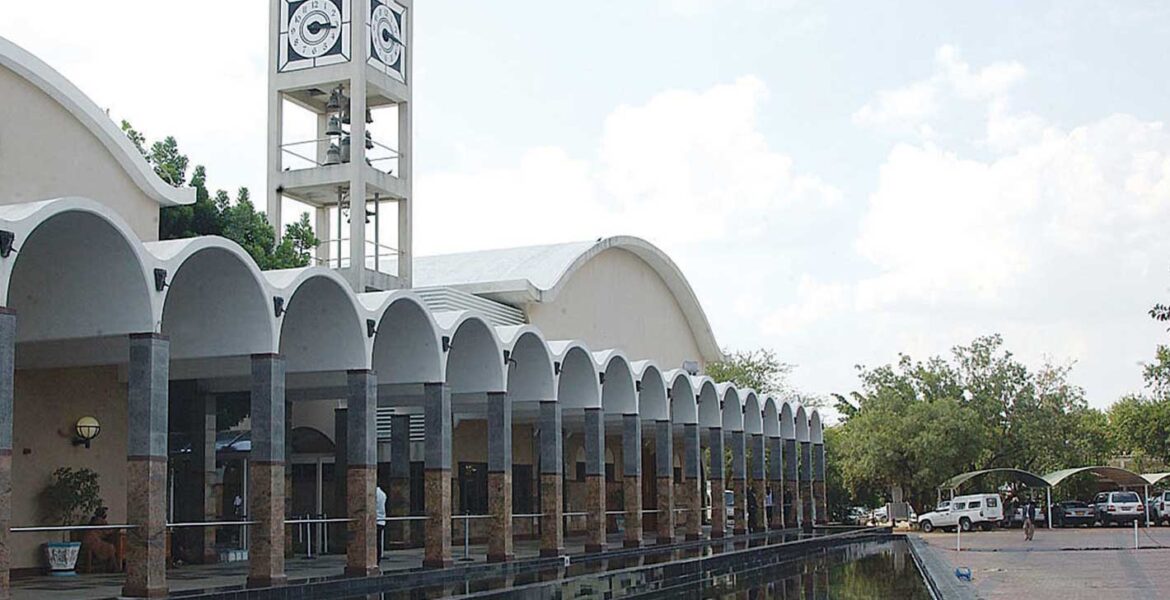- No records of election finances filed by elected MPs say IEC.
- IEC dumps financial accounting provisions of Electoral Act.
- MPs participate in National Assembly unlawfully.
- UDC admits to non-compliance
- I submitted mine – Mmolotsi
LAWRENCE SERETSE
Investigations by The Botswana Gazette reveal that all Members of Parliament have failed to comply with the requirements of the Electoral Act which requires them to disclose the source of their campaign funds and expenses. Their failure to do so means that they are unlawfully participating in the National Assembly even though it is due to the failure of the Independent Electoral Commission (IEC) to enforce requirements.
With national elections a year and six months away, The Botswana Gazette requested that the Independent Electoral Commission (IEC) release all financial returns of past candidates for the 2014 and 2009 general elections. In terms of the Electoral Act, all candidates are obliged to submit returns to the Electoral Officer in a manner to be stipulated by the Secretary of the IEC. Failure to do so renders the participation of members elected to the National Assembly unlawful.
Responding to the request of this publication, Osupile Maroba, the IEC’s spokesman, advised that “We do not have any record regarding election expenses. The clause is not implemented because Botswana does not have a law that provide (sic) for political party funding nor the law that provide (sic) for declaration of any source of funding.” Research by The Botswana Gazette reveals that the financial sources and funding of all political candidates are governed by the Electoral Act and the IEC response contradicts requirements.
The act requires a candidate to disclose all money over the sum of P10 which they spend during the campaign-together with the name of the person they received it from.
The act further provides that the Returning Officer is obliged to keep the returns and any supporting documents for a period of 6 months and provide them to any person who requests them. The IEC’s denial of The Botswana Gazette’s request to access the financial returns of candidates was not based on the IEC having destroyed the returns under the act but, notably, that it does not enforce the financial reporting provisions of the act.
The August 2016 Electoral Amendment Act, aside from introducing the Electronic Voting Machine, increased the penalty for non-compliance in filing returns from P400 to P7 500; Other compliance provisions have remained unchanged and were thereby in force for the period requested by The Botswana Gazette.
Among the penalties imposed by the act is a prohibition on elected members to continue participating in the National Assembly unless they have applied for a Condoning Order from the High Court.
The IEC’s position that it does not have any returns for candidates indicates that while it did not enforce the provisions of the act, elected members of parliament have also failed to uphold requirements by not seeking a Condonation Order in either 2014 or 2009.
Speaking to this publication, Umbrella for Democratic Change (UDC) mouthpiece Moeti Mhwasa admitted that there has been non-compliance and that IEC has never enforced requirements of the act.
Part of the existing problem, he said, has been that those in power have not enforced it deliberately because they know they spend more funds in elections than opposition. “We are not in power but we should not be absolved because we abide by those requirements but we will have to meet as the party to decide what to do about this and I cannot definitely give any response about it now,” he said.
Alliance for Progressives (AP) and Francistown South MP Wynter Mmolotsi however told this publication that he submitted his returns and expenses both in 2009 and 2014 where he was refunded P500.
BDP Chairman Communications and International Relations Thapelo Pabalinga referred the reporter to Deputy Secretary General Shaw Kgathi who was also not readily available to expound on the matter at party level.
In various High Court Judgments by Justices Kirby, Dingake and others have held that written laws passed by parliament that impose obligations on the state and the general citizenry cannot be ignored but need to be repealed by parliament if they are to be abandoned. Those obligations, the court held, cannot be taken away or avoided by overlooking, ignoring or disobeying the laws that created them, even if they have fallen into disuse for a considerable period of time. The IEC which was created by an act of parliament does not have the power to ignore legislation even if it views it to be moribund.
The controversial Electoral Amendment Act, passed in 2016 was according to Botsalo Ntuane moved in parliament at the instance of the IEC. Former head of the IEC, Gabriel Seeletso, however denied this, saying the organisation was approached by highest office in the country to introduce Electronic Voting Machines (EVMs). It was for this reason, according to Seeletso, that a national consultative exercise could only take place after the passing to the legislation.
Speaking in parliament on 26th February, Minister of Presidential Affairs, Governance and Public Administration, Eric Molale, insisted that Batswana want the introduction of EVMs. The statement is contrary to reporting by this publication and other media outlets that showed that the public is tremendously against the implementation of the EVMs without proper safeguards.
Molale advised parliament that EVMs will be used in the 2019 General Elections in spite of the Botswana Congress Party (BCP)’s pending legal challenge. The minister’s comments are in stark contrast to the often (erroneously) cited “lis pendens” rule that prevents members of parliament discussing or even raising matters that are pending before the courts.
The minister went on to add that proper consultation with Batswana was done and that the BCP was wasting time with court cases. Some legal experts say this conduct by government constitutes Contempt of Court, even though Molale is covered by parliamentary privilege.

